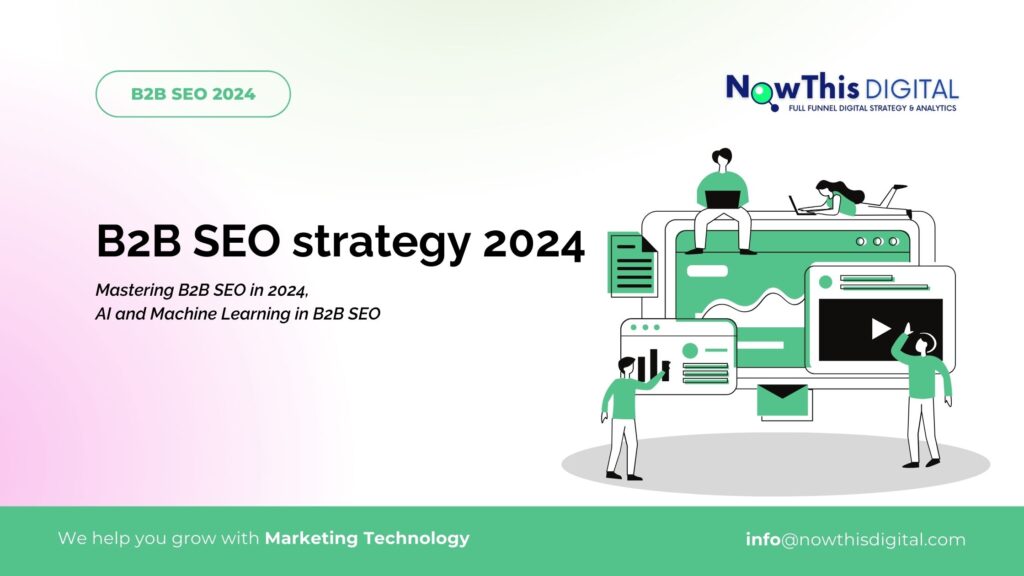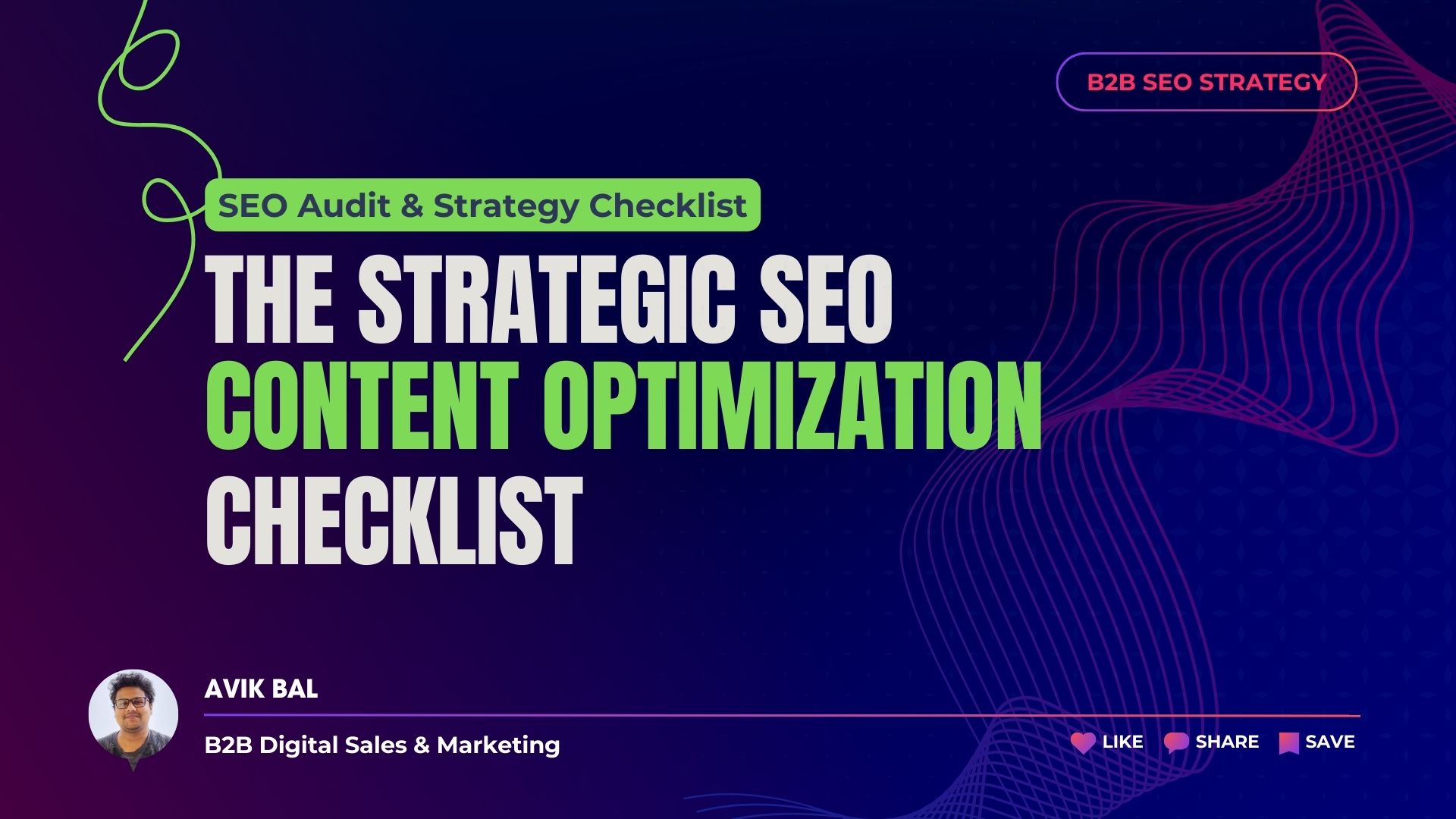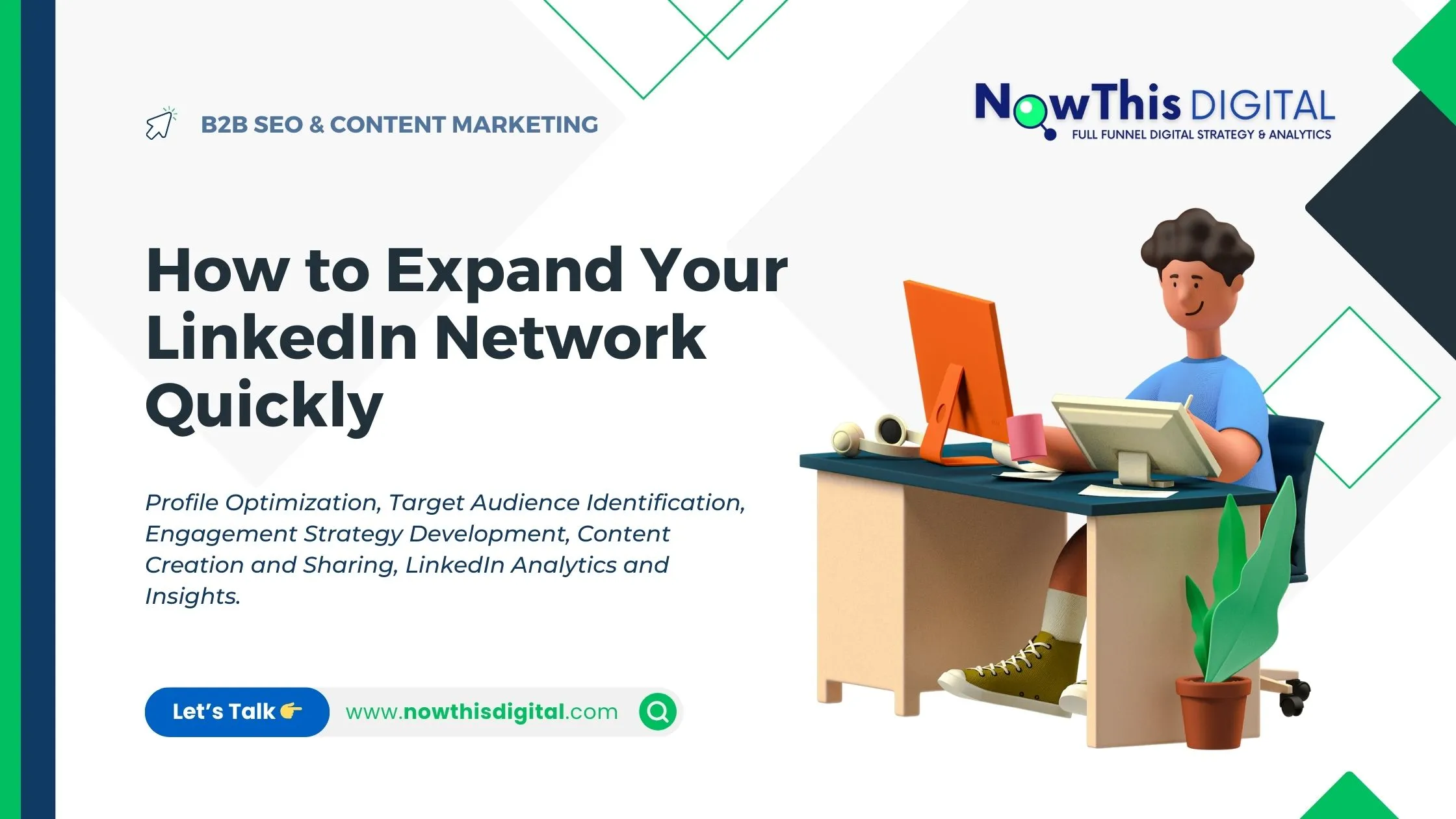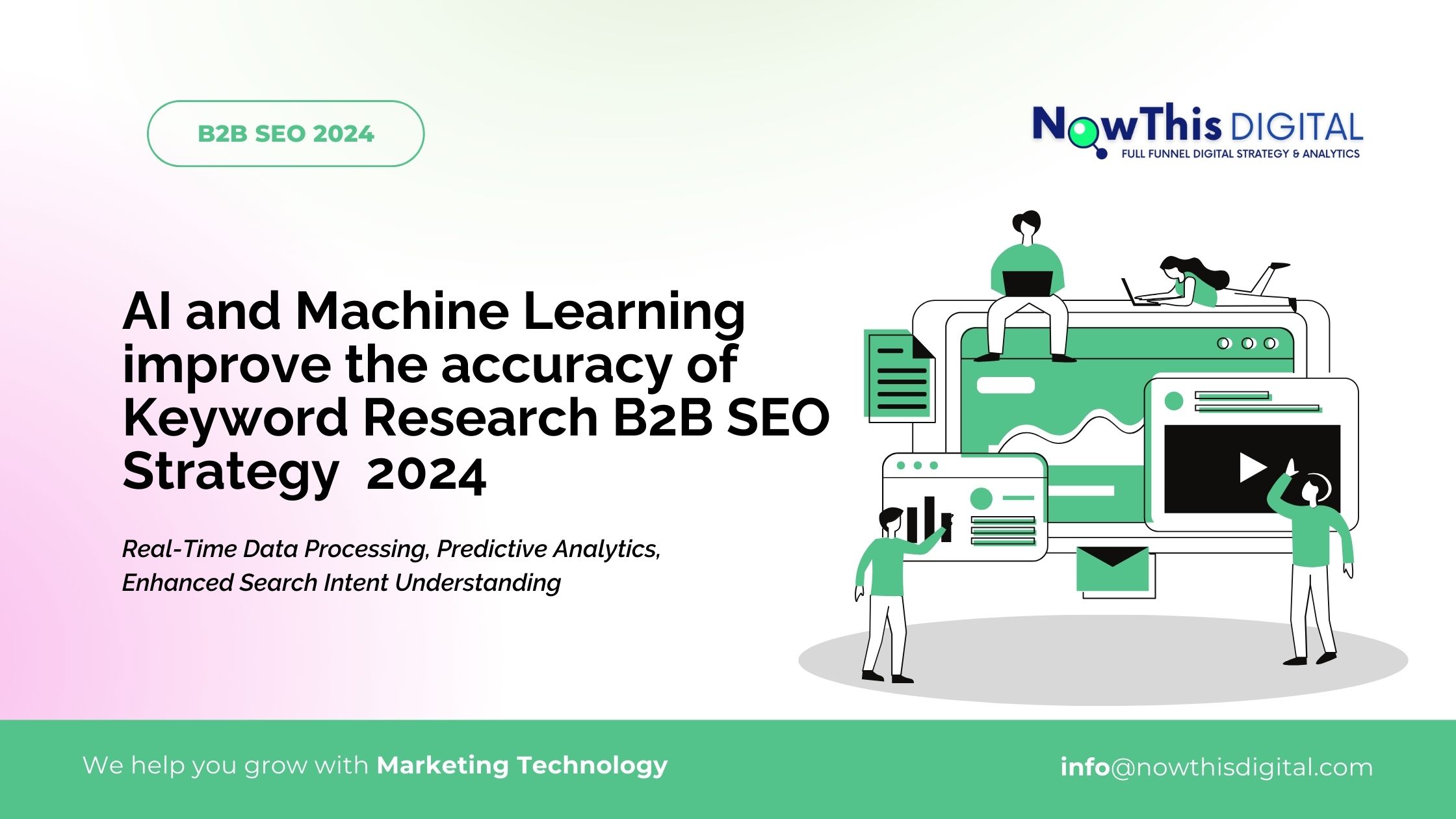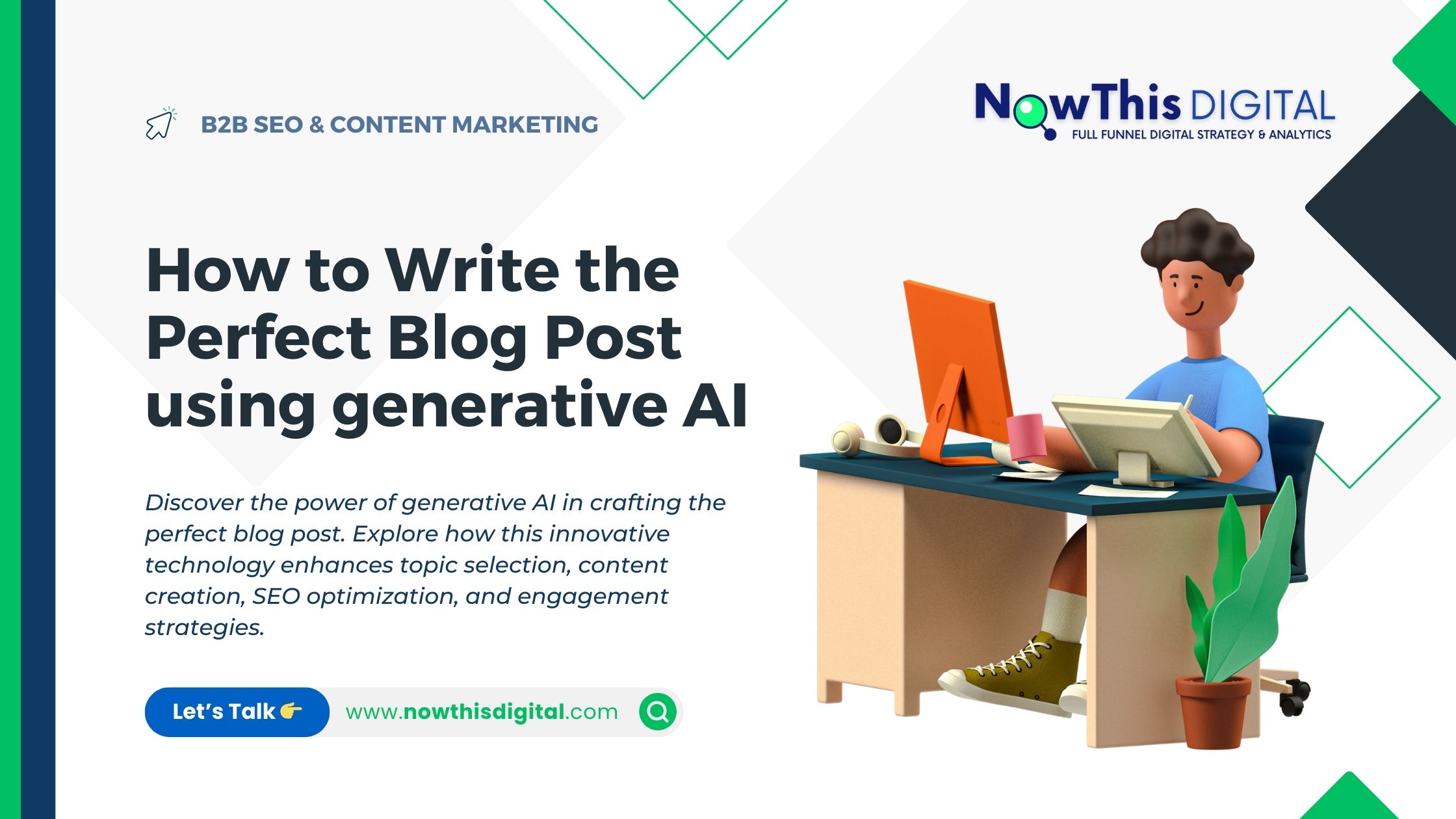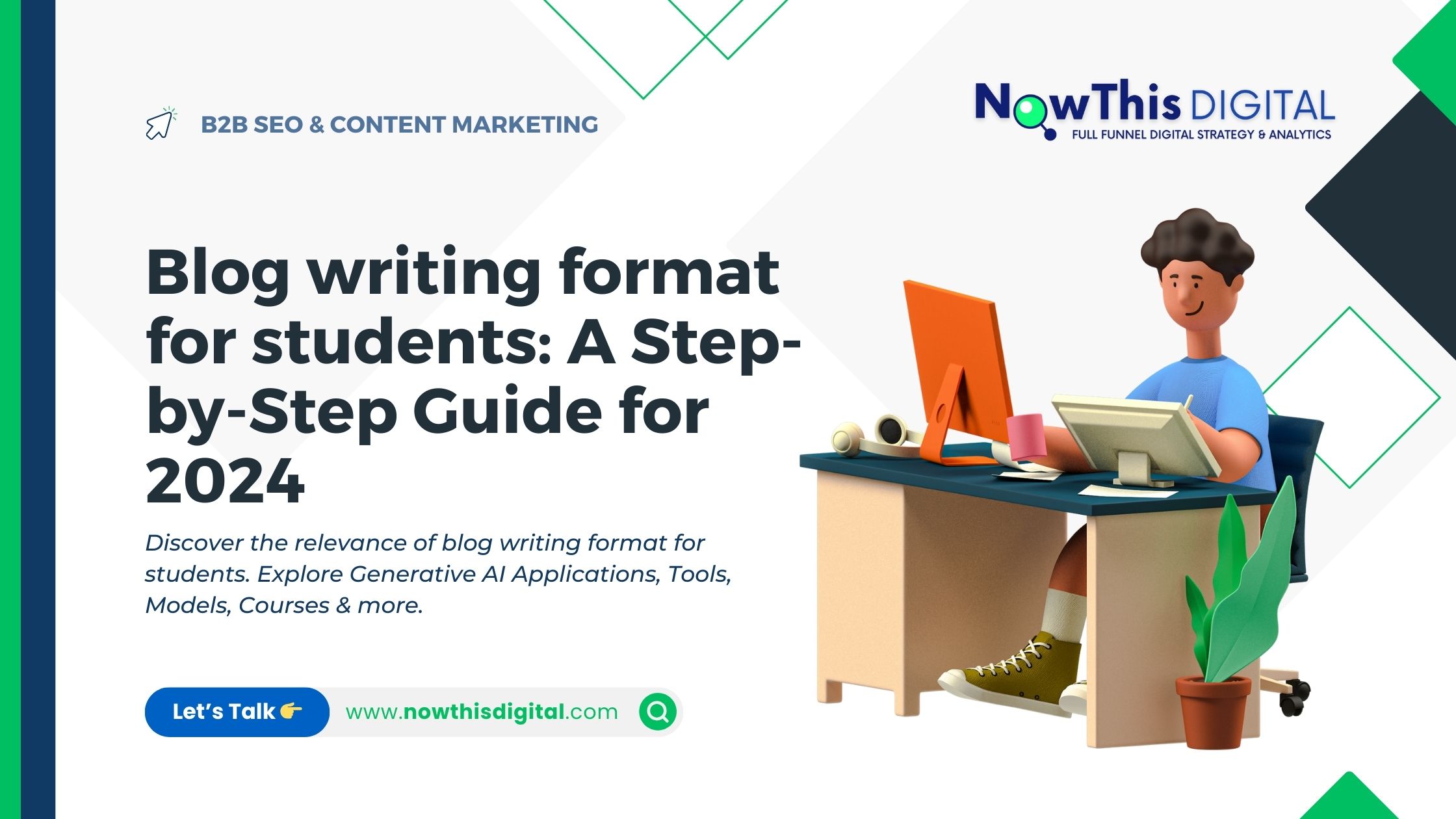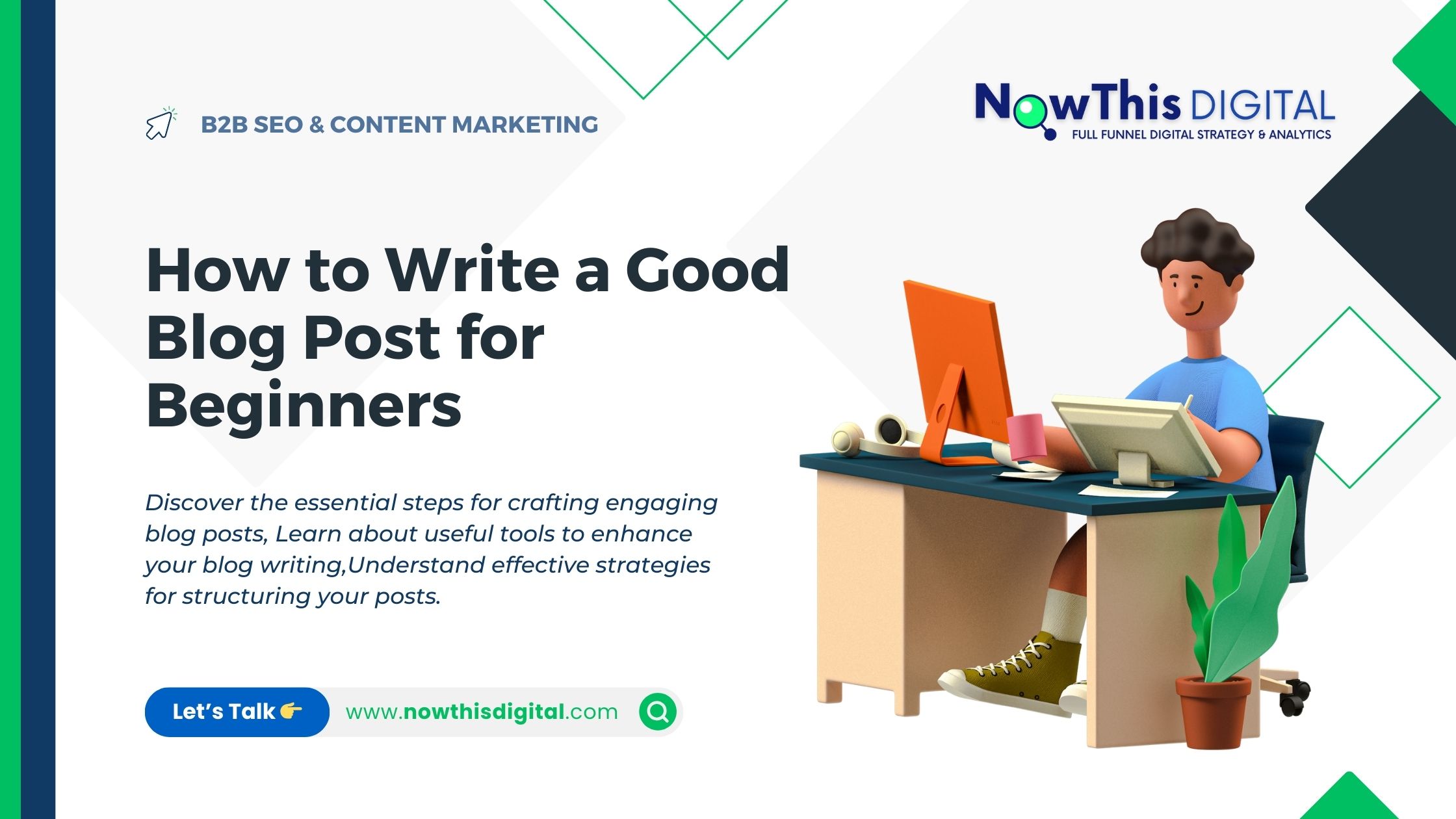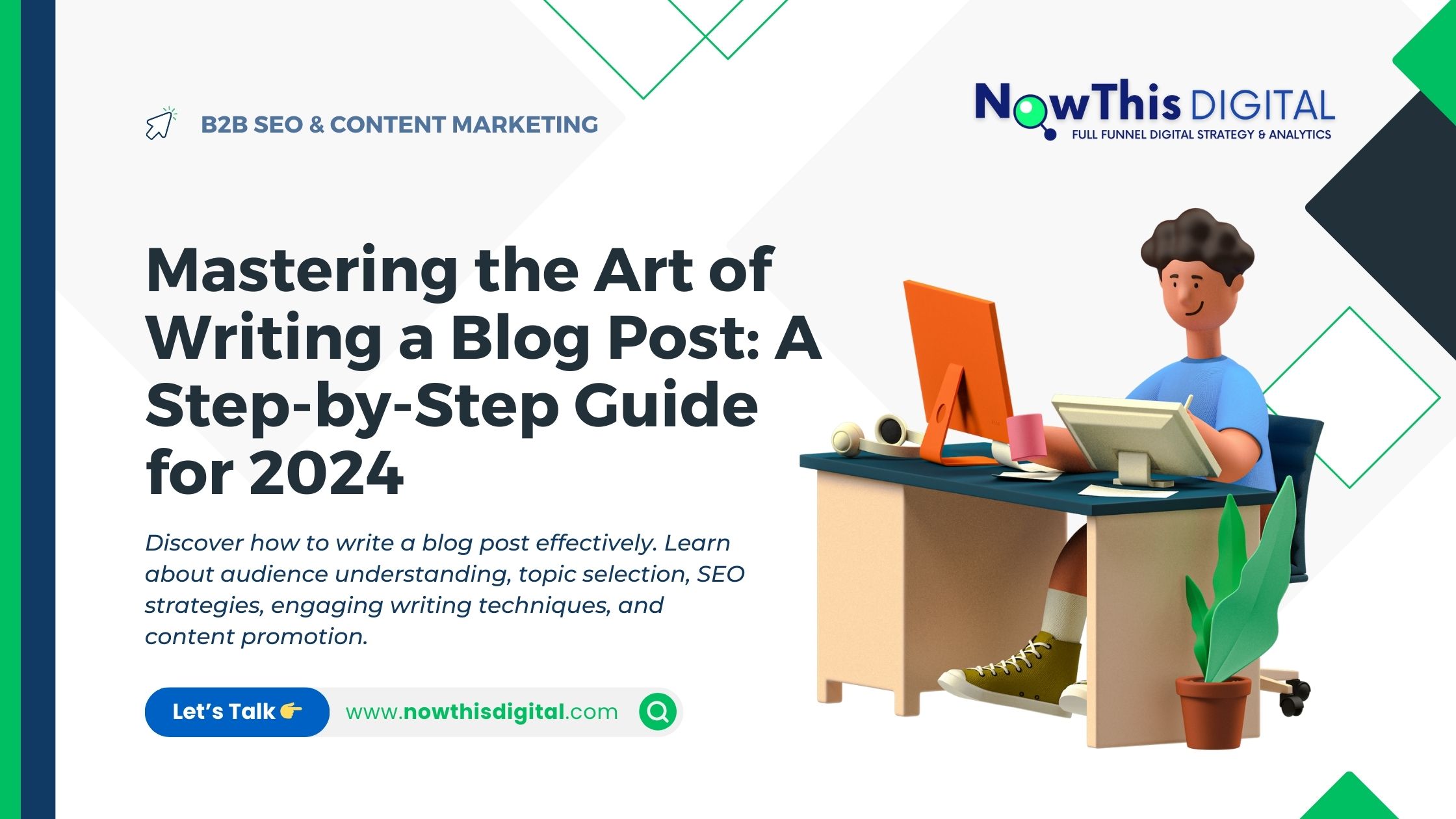How to create a winning B2B SEO strategy in 2024?
What is SEO?
SEO stands for Search Engine Optimization. It is the practice of optimizing a website and its content to rank higher in search engine results pages (SERPs) for relevant keywords or phrases. The goal of SEO is to increase the visibility and organic (non-paid) traffic to a website from search engines like Google, Bing, and Yahoo.
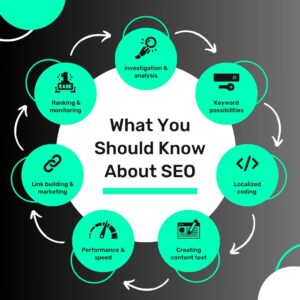
What is B2B SEO?
B2B SEO, or Business-to-Business Search Engine Optimization, is the process of optimizing a website to improve its visibility and rankings on search engines for keywords and phrases that target other businesses as potential customers. Unlike B2C (Business-to-Consumer) SEO, which focuses on reaching individual consumers, B2B SEO aims to attract and engage decision-makers and professionals within other companies.
B2B SEO strategy 2024
As we approach 2024, the landscape of B2B SEO is evolving rapidly. With the ever-increasing competition in the digital realm, businesses must adapt their SEO strategies to stay ahead of the curve. In 2024, the focus will shift towards delivering a seamless and personalized user experience, leveraging cutting-edge technologies, and aligning SEO efforts with broader digital marketing initiatives.
The introduction of advanced AI and machine learning algorithms will revolutionize how businesses approach keyword research, content optimization, and user intent analysis. Successful B2B SEO strategies in 2024 will prioritize creating high-quality, authoritative, and engaging content that resonates with target audiences and addresses their specific pain points.
Moreover, the integration of voice search and conversational AI will necessitate a shift towards optimizing content for natural language queries, as more users adopt voice-enabled assistants for research and decision-making processes.
In this rapidly changing environment, businesses that embrace agility, innovation, and data-driven decision-making will be well-positioned to outperform their competitors and capture a larger share of the B2B market.
Key Aspects of B2B SEO:
- Target Audience: B2B SEO targets businesses rather than individual consumers. This means understanding the needs, behaviors, and decision-making processes of business professionals and tailoring content to address these aspects.
- Keyword Research: Identifying relevant keywords is crucial. In B2B SEO, keywords often include industry-specific terms, product names, and solutions that businesses might be searching for. Long-tail keywords and phrases that reflect the specific needs of business clients are particularly important.
- Content Creation: High-quality, informative, and authoritative content is key. This includes blog posts, whitepapers, case studies, industry reports, and how-to guides that provide valuable insights and solutions to other businesses. The content should be tailored to different stages of the buyer’s journey, from awareness to decision-making.
- Technical SEO: Ensuring that the website is technically sound is essential for B2B SEO. This includes optimizing site speed, mobile-friendliness, secure connections (HTTPS), proper indexing and crawlability, and a logical site structure that facilitates easy navigation.
- On-Page Optimization: This involves optimizing individual web pages with targeted keywords, compelling meta titles and descriptions, header tags, and internal linking to enhance the user experience and improve search engine rankings.
- Off-Page SEO: Building a strong backlink profile is crucial. This includes earning links from reputable industry websites, publications, and blogs. Guest blogging, influencer outreach, and participating in industry forums and communities are effective strategies.
- Analytics and Measurement: Continuously tracking and analyzing the performance of SEO efforts is important to understand what works and what doesn’t. Key metrics include organic traffic, keyword rankings, conversion rates, and user engagement.
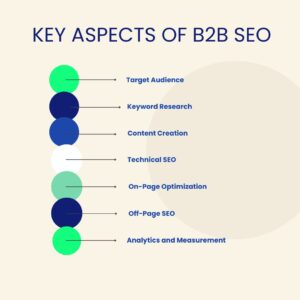
Difference Between B2C and B2B SEO Strategies
B2C (Business-to-Consumer) and B2B (Business-to-Business) SEO strategies have distinct approaches due to their different target audiences and buying processes. Here’s a quick breakdown of the key differences:
Target Audience
- B2C SEO: Targets individual consumers. Focuses on personal interests and needs.
- B2B SEO: Targets businesses and professionals. Addresses business needs and industry challenges.
Buyer’s Journey
- B2C SEO: Shorter buying process. Consumers make quicker decisions.
- B2B SEO: Longer, more complex buying process involving multiple decision-makers.
Keyword Strategy
- B2C SEO: Uses broad, high-volume keywords. Examples: “best running shoes,” “cheap flights.”
- B2B SEO: Uses specific, low-volume keywords. Examples: “enterprise CRM software,” “industrial IoT solutions.”
Content Creation
- B2C SEO: Engaging and entertaining content like blogs, videos, and social media posts.
- B2B SEO: Informative and detailed content like whitepapers, case studies, and industry reports.
On-Page Optimization
- B2C SEO: Focuses on engaging visuals and strong calls-to-action (CTAs) for quick purchases.
- B2B SEO: Emphasizes detailed content and CTAs for lead generation (e.g., “Download our whitepaper”).
Link Building
- B2C SEO: Gains links from popular consumer sites and influencers.
- B2B SEO: Earns links from industry-specific sites and professional publications.
Analytics and Metrics
- B2C SEO: Tracks metrics like traffic, conversion rates, and social media engagement.
- B2B SEO: Focuses on lead quality, conversion rates, and the impact of content on the sales funnel.
Conclusion
Both B2C and B2B SEO aim to boost online visibility and drive traffic, but they do so in different ways. B2C SEO targets quick consumer purchases with engaging content, while B2B SEO focuses on building long-term relationships through detailed, informative content. Understanding these differences helps in crafting effective SEO strategies tailored to each business type.
Common Mistakes to Avoid in B2B SEO Strategy for 2024
- Ignoring Audience Research: Failing to understand your target audience can lead to irrelevant content and missed opportunities.
- Neglecting Long-Tail Keywords: Overlooking specific, low-volume keywords means missing out on highly targeted traffic.
- Poor Content Quality: Producing generic or low-value content won’t engage your audience or improve rankings.
- Weak Technical SEO: Ignoring site speed, mobile optimization, and crawlability can hurt your search engine performance.
- Inadequate Link Building: Relying on low-quality backlinks instead of building relationships with industry authorities.
- Not Tracking Performance: Failing to monitor and adjust your strategy based on analytics can lead to missed growth opportunities.
- Ignoring SEO Trends: Staying updated with the latest SEO trends and algorithm changes is crucial for maintaining competitiveness.
By avoiding these B2B SEO common mistakes, you can enhance your B2B SEO strategy and achieve better results in 2024. For a more detailed guide, check out our comprehensive post on B2B SEO strategy.
AI and Machine Learning in B2B SEO Strategy for 2024
- Ignoring AI Tools: Overlooking AI-powered SEO tools can result in missed opportunities for automation and improved efficiency.
- Not Personalizing Content: Failing to use AI for personalized content recommendations can lead to lower engagement and conversion rates.
- Overlooking Predictive Analytics: Neglecting machine learning for predictive analytics can cause missed insights on future trends and customer behavior.
- Underutilizing Chatbots: Not implementing AI chatbots can result in poor customer service and missed lead generation opportunities.
- Ignoring Data-Driven Insights: Failing to leverage AI for analyzing large datasets can lead to less informed decision-making.
- Overcomplicating AI Implementation: Trying to implement too many AI solutions at once can overwhelm your team and resources.
- Neglecting Regular Updates: Not updating AI models regularly can lead to outdated strategies and decreased effectiveness.
By integrating AI and machine learning into your B2B SEO strategy effectively, you can optimize performance and stay ahead in 2024. For a more in-depth exploration, check out our detailed post on AI in B2B SEO strategy.
How AI and Machine Learning Improve Keyword Research for B2B SEO
AI and machine learning are revolutionizing keyword research, making it more accurate and efficient. Here’s how they enhance the process:
- Data Analysis at Scale: AI can analyze vast amounts of search data quickly, identifying patterns and trends that humans might miss. This allows for more precise keyword selection.
- Predictive Analytics: Machine learning algorithms predict which keywords will perform best based on historical data and current trends. This helps in targeting keywords that are likely to drive traffic and conversions.
- Natural Language Processing (NLP): AI uses NLP to understand the context and intent behind search queries. This ensures that the chosen keywords align better with what potential customers are actually searching for.
- Competitor Analysis: AI tools can automatically analyze competitors’ keywords and strategies, providing insights into what works well in your industry and helping you identify gaps and opportunities.
- Personalized Recommendations: Machine learning algorithms offer personalized keyword suggestions based on your specific industry, target audience, and business goals, ensuring that your keyword strategy is highly relevant.
- Real-Time Updates: AI tools provide real-time data and updates, allowing you to adjust your keyword strategy promptly in response to changing search behaviors and market conditions.
- Long-Tail Keyword Identification: AI excels at identifying long-tail keywords that might be overlooked in traditional research but are highly relevant and less competitive, leading to better-targeted traffic.
Conclusion
Integrating AI and machine learning into your B2B SEO strategy can significantly improve the accuracy and effectiveness of your keyword research. By leveraging these advanced technologies, you can stay ahead of the competition and better meet the needs of your target audience. For a deeper dive into this topic, check out our comprehensive post on AI in B2B SEO strategy.
The Ultimate B2B SEO Strategy Guide for 2024
In today’s competitive digital landscape, mastering B2B SEO is crucial for any business aiming to enhance its online visibility and attract high-quality leads. The strategies and tactics you implement can significantly impact your search engine rankings and overall digital presence. Here’s a comprehensive guide to developing an effective B2B SEO strategy for 2024.
Understand Your Target Audience
Before diving into SEO tactics, it’s essential to understand your target audience. Create detailed buyer personas that capture the demographics, behaviors, and needs of your potential customers. This deep understanding will help you tailor your content and keyword strategies to resonate with your audience, addressing their specific pain points and preferences.
Conduct Comprehensive Keyword Research
Keyword research is the backbone of any SEO strategy. Use tools like Google Keyword Planner, SEMrush, or Ahrefs to identify relevant keywords that your target customers are searching for. Focus on long-tail keywords specific to your industry, products, or services. Incorporate these keywords naturally into your content to improve search engine visibility without compromising readability.
Optimize On-Page SEO Elements
On-page SEO involves optimizing individual web pages to rank higher and earn more relevant traffic. Key elements to focus on include:
- Title Tags and Meta Descriptions: Ensure each page has unique and descriptive title tags and meta descriptions incorporating your target keywords.
- Header Tags (H1, H2, H3): Use header tags to structure your content, making it easier for search engines and users to understand.
- URL Structure: Create SEO-friendly URLs that are concise and include relevant keywords.
- Internal Linking: Establish a robust internal linking strategy to improve site navigation and distribute link equity across pages.
Perform a Technical SEO Audit
A technical SEO audit helps identify and fix any issues that could impact your website’s performance on search engines. Key aspects to examine include:
- Site Speed: Ensure your website loads quickly on all devices.
- Mobile-Friendliness: Optimize your site for mobile users, ensuring a responsive design.
- Indexability and Crawlability: Use tools like Google Search Console to ensure search engines can crawl and index your site effectively.
- Site Architecture: Organize your site’s structure to enhance user experience and search engine navigation.
Create High-Quality, Relevant Content
Content is at the heart of any successful SEO strategy. Develop informative and engaging content that addresses the search intent of your target keywords. This can include blog posts, whitepapers, case studies, and infographics. Focus on creating content that provides value to your audience, answering their questions and solving their problems.
Build a Strong Backlink Profile
Off-page SEO, particularly backlink building, is crucial for establishing your site’s authority. Strategies to generate quality backlinks include:
- Guest Blogging: Write guest posts for reputable sites in your industry.
- Content Promotion: Share your content on social media platforms and engage with your audience.
- Networking: Build relationships with industry influencers and thought leaders who can link to your content.
Monitor and Measure Your Performance
Regularly track the performance of your SEO strategy using key performance indicators (KPIs) and analytics tools. Important metrics to monitor include:
- Organic Traffic: The number of visitors coming from search engines.
- Keyword Rankings: How well your target keywords are ranking on SERPs.
- Conversion Rates: The percentage of visitors converting into leads or customers.
- Bounce Rates: The percentage of visitors leaving your site after viewing only one page.
Use tools like Google Analytics and Google Search Console to gain insights and make data-driven decisions to optimize your strategy continuously.
Stay Updated with SEO Trends
SEO is a dynamic field with frequent algorithm updates and evolving best practices. Stay informed about the latest trends and changes in the SEO landscape to keep your strategy effective. Follow industry blogs, attend webinars, and participate in SEO forums to stay ahead of the curve.
Conclusion
By following these steps and continuously refining your B2B SEO strategy, you can improve your website’s visibility, attract qualified leads, and drive business growth in the competitive online landscape of 2024. Implement these strategies diligently to ensure your B2B business thrives and maintains a strong digital presence.
B2B SEO landscape is poised to undergo significant transformations. Businesses that proactively adapt their strategies to align with emerging trends and technologies will be well-positioned to outperform their competitors and capture a larger share of the market.
To succeed in 2024, B2B companies must prioritize delivering exceptional user experiences, leveraging advanced AI and machine learning capabilities, and seamlessly integrating SEO efforts with broader digital marketing initiatives. By doing so, they can ensure their content resonates with their target audiences, addresses specific pain points, and provides tangible value.
Additionally, businesses must stay agile and data-driven, continuously monitoring and adjusting their SEO strategies based on evolving algorithms, user behavior, and market dynamics. Embracing voice search optimization, conversational AI, and personalization will be crucial to meeting the evolving needs and preferences of B2B audiences.
While the road ahead may seem daunting, businesses that embrace innovation, invest in the right resources, and remain committed to delivering high-quality, authoritative content will be well-equipped to navigate the complexities of the 2024 SEO landscape. By doing so, they can establish themselves as industry leaders, forge stronger connections with their target audiences, and drive sustainable growth in an increasingly competitive digital world.

